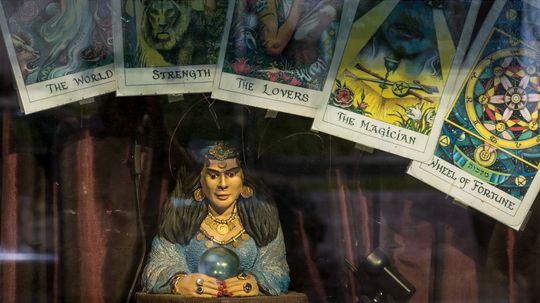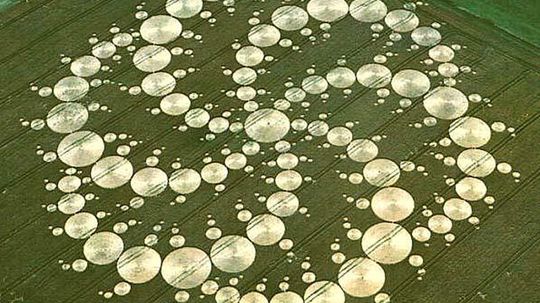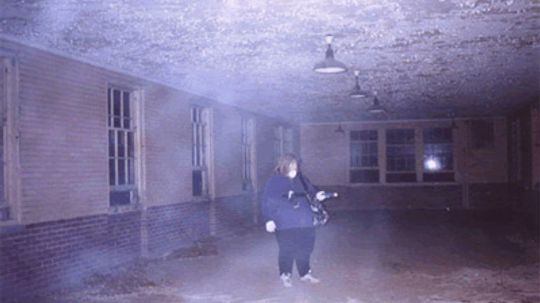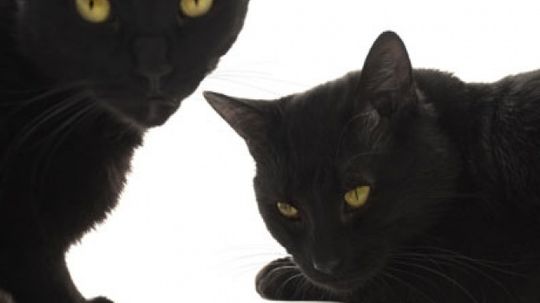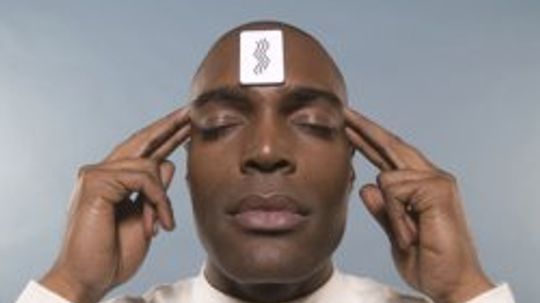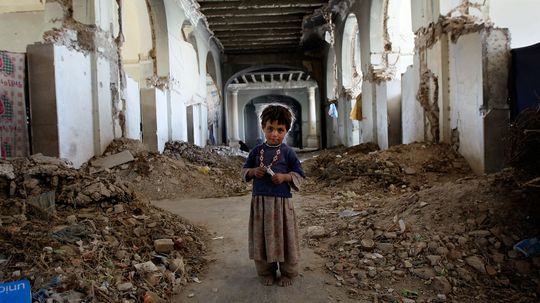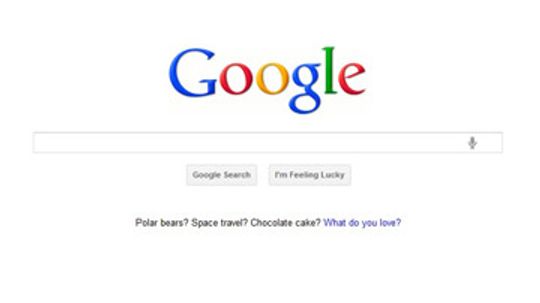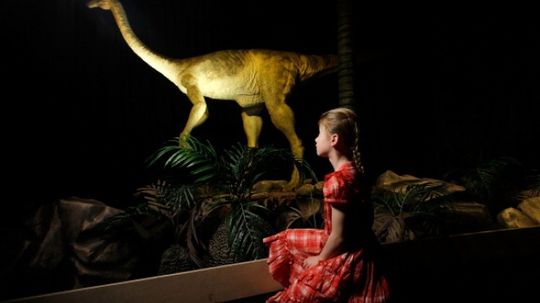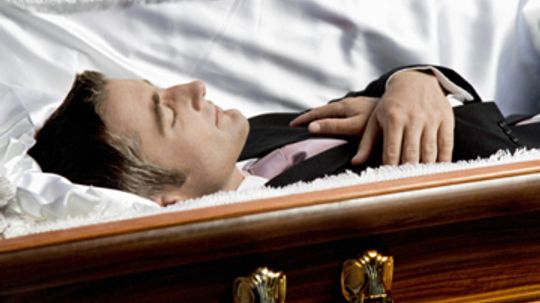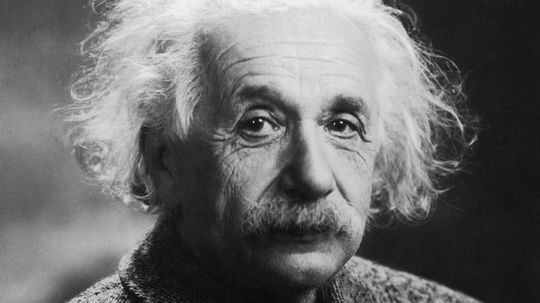Science Versus Myth
Are vampires real? What is an out-of-body experience? Are crop circles proof that aliens exist? HowStuffWorks explores what is real and what is urban legend with this collection of Science Versus Myth articles.

Top 10 Ghost Tours
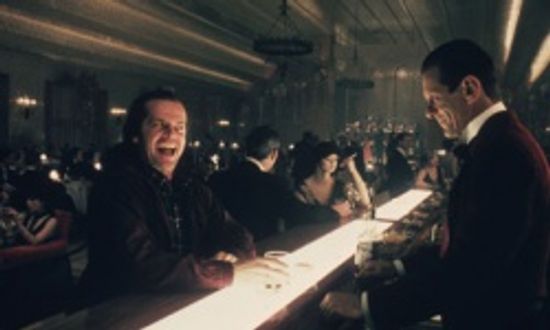
Top 10 Hotels That Will Scare the Daylights Out of You

What's So Scary About The Winchester House Story?
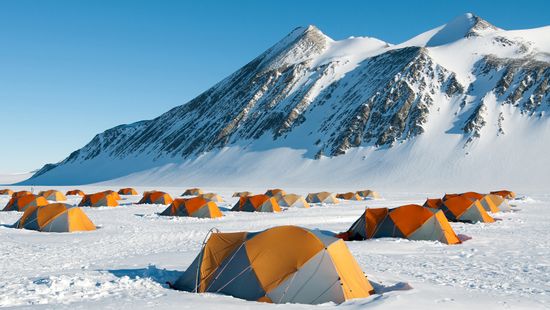
The Pyramid in Antarctica Isn't Actually a Pyramid

The Spiritual Awakening Signaled by the 757 Angel Number

8888 Angel Number Meaning: Prosperity, Abundance, and Spiritual Growth

Spirit Guides Bring Believers Comfort, Insight, and Aid

Psychic Powers: Fun to Consider, Even Without Scientific Support

How to Manifest Love: Merging Mind and Heart
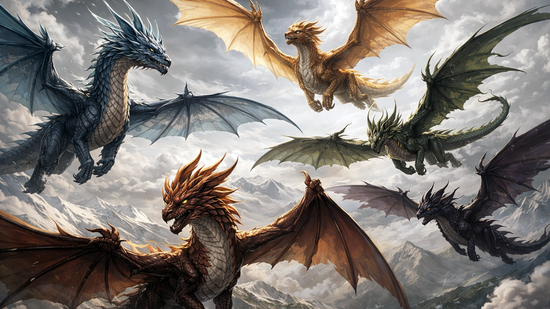
What Is a Group of Dragons Called? It's Almost Too Obvious

The Beast of Bray Road: Wisconsin's Claim to Cryptid Fame

Lougawou: A Haitian Vodou Werewolf

Do Marfa Lights Come From UFOs, Cars, the Military or Ghosts?

Solfeggio Frequencies: Healing Tones or Pseudoscience?

Is Sacred Geometry Related to Science or Is It Simply Beautiful?

What If Cows Didn't Exist?

What If Earth's Magnetic Field Flipped?

What If Humans Could Breathe Underwater?
Learn More / Page 16
Whether you chew to freshen your breath or blow a big bubble, you probably shouldn't swallow gum. But does it really stay in your body for seven years if you do?
By Josh Clark
Ever seen a movie where the hero gets in an elevator, but the evil villain cuts the cables? Elevators in the real world have so many safety features, it's not as horrible a situation as the films make out.
It isn't actually about telling your fortune, and it's not even about telling you what you should do. So, why would people seek out a Tarot reading?
Advertisement
If you've seen the movie "The Exorcist," you have some idea of what exorcism is. But is it real, or are there other explanations for what some people call "possession"? Learn why a priest might perform an exorcism and more.
By Julia Layton
Even if you've never seen a zombie movie, you probably know something about the walking dead. But did you know that zombies have their roots in folklore and -- according to some researchers -- in real events in Haiti?
Are crop circles the work of alien visitors? Are they a natural phenomenon? Are they elaborate hoaxes perpetrated by some very dedicated humans? Learn how researchers try to separate the supernatural from the scientific.
The eerie occurrence of "otherworldly" voices showing up on tape -- voices that weren't audible during recording -- is poised for the kind of exposure typically saved for UFOs and ESP.
Advertisement
The movie "Ghostbusters" introduced a generation to proton beams, ectoplasm and a terrorizing Stay Puft Marshmallow. Real-life ghost busting is a bit less glamorous and whole lot cleaner.
Could a person catch fire - with no apparent spark or flame - and then burn so completely nothing else ignites around them?
There are more than 40 theories as to what déjà vu is and what causes it, and they range from reincarnation to memory glitches. Do these theories shed any light on this perplexing phenomenon?
A report declassified in late February 2007 under the UK's Freedom of Information Act reveals that Britain's Ministry of Defence has been testing psychics. Find out why.
By Julia Layton
Advertisement
Numerology says everything in the world is dependent upon the mystical properties of numbers. But critics aren't so sure.
Dragons have captured imaginations -- and their fair share of maidens -- across the globe. But are they more than mythological?
The speed of light is like that annoying friend who beats you at every game. What would happen if humans one day surpassed the cosmic speed limit?
It's one of those fantastic things you may have wished for at one point, like, say peace on Earth, but would a world full of cures be radically different from the one we know, or not so much?
Advertisement
While organizations around the world are fighting to end famine, so far, no one has come up with a game-changer. Why does famine happen in the first place, and what would a hunger-free world be like?
Would we stick flowers in our hair and dance in the street? Or twiddle our thumbs and wonder what to do with all that new free time? Join us as we ponder a world without war.
By Robert Lamb
Would a world with ample water for all mean less disease? Fewer wars? Globally improved health and finances? Sip along with us as we wonder what if.
It's a crazy thought, but what if cancer didn't exist? And malaria, schizophrenia and every other illness that disrupts our normal functioning? Come along as we investigate what such a world might look like.
Advertisement
Unless you've been living under a rock (one not appearing on Google Maps' Street View), you're probably intimately familiar with the behemoth and its many services. But what would the world look like if this powerhouse company had never existed?
Before leaving work, you'll need to check the traffic report. Lately, a disruptive T. rex has meant some adjustments to your commute. What other changes would be in store if dinos roamed the Earth?
You may know that the ancient Egyptians used embalming in mummification. But they weren't the first to embalm their dead, nor were they the last. In fact, it's still being done today.
Matches work by combining flammable chemicals with heat from friction. Learn whether you can light a match with sandpaper in this article.
Advertisement
Forward and back, left and right, up and down -- most of us are familiar with these spatial dimensions. We might even pinpoint our location in time. Is that all there is to dimensions? No way, say the scientists who have a theory for everything.
By Robert Lamb
It opened the door for numerous technological advances, from nuclear power and nuclear medicine to the inner workings of the sun. It even appeared in the title of a Mariah Carey album. Really. Can you define those three key variables, too?
By Robert Lamb & Yara Simón


